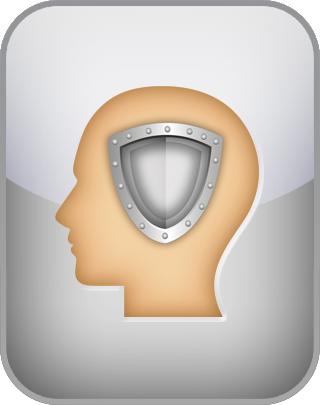Academically reviewed by Dr. Jennifer Schulz, Ph.D., associate professor of psychology
Defense Style Test
Psychological defenses are defined as unconscious or semi-conscious automatic reactions that serve to protect our self-image and shield us from distressing thoughts and feelings in everyday life. We all use defenses—in positive and negative as well as mature and immature ways. Doing otherwise would simply overwhelm us.
This test, based on research from Harvard Medical School, will measure what your defenses are like. To take the test, indicate your response to each of the following questions below.
Question 1 of 87
If I were in a crisis, I would seek out another person who had the same problem.
| Disagree | Agree |
NEXT
The IDRlabs Defense Style Test was developed by IDRlabs based on data and research from Harvard Medical School. IDRlabs is not associated with Harvard Medical school or other institutions mentioned in the test’s documentary material.
The test provides feedback such as the following:
Acting Out
Performing extreme behaviors as a means to solve emotional conflicts rather than through inward reflection or feeling. For example, instead of verbally expressing oneself when angry or sad, the person throws a glass, shouts curse words, threatens others, or engages in self-harm.
Passive-Aggression
Behaviors indirectly or implicitly expressing aggression or negative feelings such as annoyance or resentment, often accompanied by a façade of compliance that is really masking covert hostility, resistance, and resentment.
Regression
Reversion to an earlier stage of personality development when experiencing unacceptable or threatening feelings or thoughts. For example, an adult curling up in the fetal position when feeling afraid, or an adult throwing a temper tantrum as if they were a four-year-old when not getting their way.
Withdrawal
Flight-type behaviors, in which a person removes or disconnects themself emotionally or physically from uncomfortable events, interactions, or stimuli that produce painful thoughts or feelings. For example, a person stays home from work because of a conflict they had with a co-worker the day before.
Inhibition
An involuntary decrease in motivation to engage with an associated anxiety or do something to prevent such anxiety. For example, a person doesn’t read up on their exam, struggles with shyness while trying to meet new people, or eats cake while dieting.
Projection
Attributing unacceptable thoughts, feelings, motives, and traits of one’s own to other people, thus coloring one’s own mistaken interpretation of the other person. For example, a person believes other people are looking at them in public because they themself feel unattractive or self-conscious.
Help-Rejecting Complaining
Complaining or soliciting help from others, but then rejecting their support as a way of resolving emotional conflict within oneself. Help-rejecting complaining is positively correlated with hypochondriasis, a defense mechanism with which an individual feels that no one understands them, or they exaggerate their circumstances to themselves and others for the purpose of evading accountability or guilt.
Fantasy
Soothing oneself through fantasizing; escaping frustration by substituting the conditions of reality with imaginary satisfaction. For example, a person daydreams excessively about grand accomplishments as opposed to working on furthering their real-world success.
Denial
Rejecting unpleasant experiences by blocking external reality from awareness in order to avoid the anxiety associated with acknowledging objective reality. For example, a person missed out on a major opportunity and now tells themself it was not that big of a deal.
Somatization
A tendency to perceive and communicate intrapsychic conflict as physical symptoms without organic cause in order to avoid intolerable feelings or thoughts. For example, feeling nauseous or ill due to the anxiety associated with an important presentation at work.
Isolation of Affect
The separation of emotion from experiences and ideas so that reality can be accepted without an emotional response since the associated affect is blocked from awareness. For example, describing an acute traumatic event without the appropriate accompanying emotional response, i.e., thinking the feeling without feeling the feeling.
The authors of this online psychological defenses personality test are certified in the use of numerous personality tests and have worked professionally with typology and personality testing. The results of our online quiz (or personality test) are provided "as-is" and should not be construed as providing professional or certified advice of any kind. For more on our online personality test, please consult our Terms of Service.
References
- Manual for the Defense Style Questionnaire (DSQ), Michael Bond, M.D. & Steven Wesley, M.D. 1996.
- Vaillant GE: Ego Mechanisms of Defense and Personality Psychopathology. Journal of Abnormal Psychology 1994.
- Perry JC, Cooper SH: An Empirical Study of Defense Mechanisms. Archives of General Psychiatry 1989.

 English
English  Español
Español  Português
Português  Deutsch
Deutsch  Français
Français  Polski
Polski  Türkçe
Türkçe  العربية
العربية  한국어
한국어 